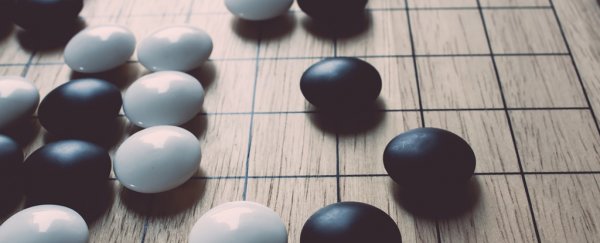It's no secret that artificial intelligence (AI) is getting better all the time, to the point where your well-honed gaming skills just can't hold a candle to a better-honed deep learning algorithm.
Now, in the latest affront to human mastery of recreational strategy, Google's AlphaGo's AI has beaten the reigning world champion of the ancient Chinese board game, Go, in the first competition of a five-match series.
Despite the surreal nature of the occasion, the contest began in a traditional manner, with South Korean grandmaster Lee Sedol respectfully bowing to his artificial opponent. However, after a match lasting some 3.5 hours, a shocked Lee finally conceded defeat, acknowledging the superiority of AlphaGo's strategy.
"I was very surprised because I did not think I would lose the game," he told press afterwards. "I think a mistake I made at the very beginning lasted until the very end. And I didn't know AlphaGo would play the game in such a perfect manner."
Despite Lee's confidence – he had said he expected a sweeping victory as recently as a fortnight ago – it's arguable that the writing may have been on the wall with this result.
While commentators are describing Lee's loss as an unexpected upset, backing the AI also seemed reasonable. AlphaGo only recently wiped the floor with a European Go champion, Fan Hui, besting him in five straight games.
Lee still has four games left to turn the series around, but it's not clear if he has what it takes to contain AlphaGo. In the first game, both players were aggressive and both made mistakes, but as the contest wore on, AlphaGo's containment of the board became increasingly apparent.
Interestingly, AlphaGo used up almost all of its allotted time, while Lee still had half an hour on the clock by the end of the match. The AI – which is said by its creators to have refined its strategy since beating Fan last year – is powered by a neural network that has studied millions of Go moves made by expert players, and has played thousands of games against itself and others to perfect its technique.
The stunning complexity of Go – which offers more possible positions than Chess, and even the number of atoms in the known Universe – is why AlphaGo's early victory in this series is being ranked as such an achievement for AI.
"We are very, very excited by this historic moment and very, very pleased with how AlphaGo performed," Demis Hassabis, CEO of AlphaGo developer Google DeepMind, told the media after the game. "Go really is our Mount Everest."
When it's not playing games in its downtime, the same kind of software is being trialled in healthcare research, with DeepMind Health announced just a fortnight ago.
If you want to check out the rest of the series played this week, you can watch the live streams here, (next match kicks off at 11:00pm ET on March 9) and get updates on the games here. Good luck, Lee, good luck, AlphaGo!
